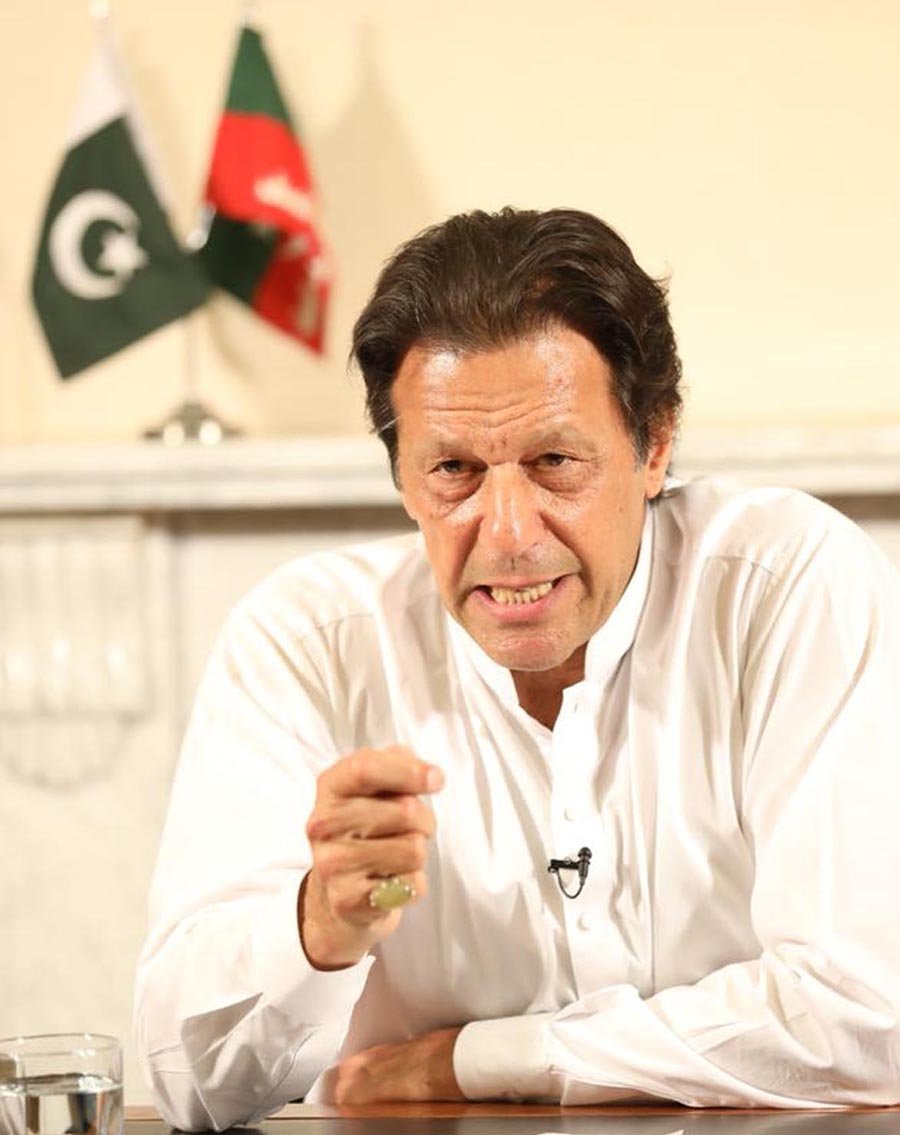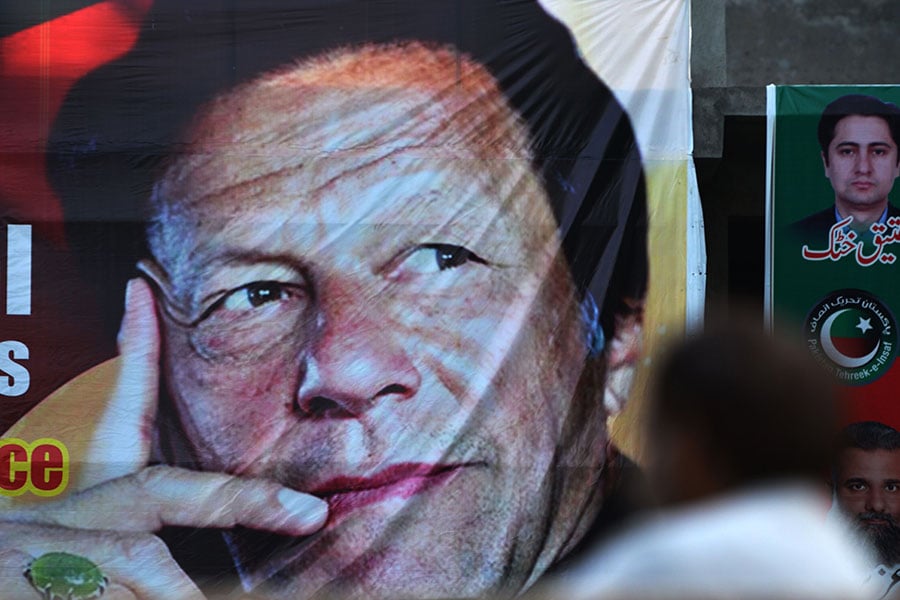In the early hours of July 26, the Pakistan Tehreek-e-Insaaf (PTI) emerged victorious winning the most number of seats in the parliament. Much ink has been spilled on (arguing for and against) the genuineness of the victory. Notwithstanding the now utterly predictable routine of all vanquished opponents crying foul over results, the reality is that Imran Khan, barring complete Armageddon (which is your average Tuesday in Pakistan), is all set to take oath as Pakistan’s 28th prime minister, with a little help from independents as well as other “like-minded” parties.
Khan’s address on July 26, unlike his trademark fire and brimstone speeches, was conciliatory, mature and statesmanlike. He spoke of a humanitarian, welfare state, a vibrant foreign policy, supremacy of the law, establishing an atmosphere of doing business as well as electoral reform. The speech was widely lauded and has inevitably raised expectations from the PTI to deliver exactly on those issues where it has excoriated the Pakistan Muslim League-N (PML-N) and the Pakistan Peoples' Party (PPP) in the past.
The proof of the pudding however, as always, is in the eating.

Virtually all aspects of the wish list in Imran Khan’s speech are inexorably linked to legislative reform. This is new territory for the PTI, which has - barring some landmark legislation in Khyber Pakhtunkhwa, such as The Right to Information Act 2013 and the Police Act, 2017 - been largely absent in the introduction of new bills or legislative reform in the national assembly. Indeed, the oft-repeated statistic of Imran Khan attending an abysmal six per cent of parliamentary sessions since 2013 is surely one that he will wish to rectify swiftly.
Let’s examine where this reform can begin.
One of the major rallying calls of Imran Khan’s political ideology (and repeated in his address) has been to make public/state institutions independent and of commencing accountability from the top down. He can do no worse than start with state-owned public bodies and regulatory institutions. Consider this dismal statistic; since the last half decade, our superior judiciary has consistently ruled that appointments of the heads of key regulatory institutions were illegal, nepotistic, lacking an objective selection procedure and in gross violation of the respective rules prescribed.
Both the governments of the PPP and the PML-N flouted their executive power under the constitution in appointing ill-qualified and embarrassingly unsuitable individuals to key posts in the SECP, OGRA, PTA and PEMRA. It can hardly be stressed further that these were not ordinary posts, they represented key institutions of the state.
The appointments culled by the Supreme Court/High Courts make for sorry reading. The OGRA Chairman (PLD 2012 SC 132), SECP Chairman (PLD 2013 SCMR 1159), PTA Chairman (PLD 2013 Lah 343) to name a few.
For all the talk (and legitimately so) of the judiciary interfering in the executive/legislative domain, the governments of the time steadfastly refused to remove these individuals of their own accord, when petitions challenging their appointment, laid bare the extent of the illegality. So exasperated was the Supreme Court that it demanded in 2013 that the central government form a commission for all future appointments to be based on merit. This order was subsequently revisited in review when the Supreme Court realized that each statutory institution had its own procedures in place under its respective laws and all that was needed was for the same to be implemented in an objective manner.
This is where Imran Khan can walk the walk.
Under the Constitution, as prime minister, he has to grant the final approval for all such public/regulatory appointments nominated by his cabinet. All the rhetoric of honesty, incorruptibility and good governance will be for naught if these appointments are not deemed to be demonstrably fair or nepotistic.

Imran Khan has alluded to creating an atmosphere of doing business and bringing foreign investments in Pakistan. Leaving the economic modalities of this to the experts, how can the PTI initiate reform in the commercial sector, in order to make foreign investment both attractive and easier?
The Foreign Exchange Manual of Pakistan (the Forex Manual) encapsulates the process of FDI entering the country with the State Bank of Pakistan (SBP), its regulator. The Securities and Exchange Commission of Pakistan (SECP) approves investment made in companies in Pakistan. Currently, the process is predictably cumbersome and bureaucratic. If an overseas investor wishes to invest privately in Pakistan, they are faced with a slew of reporting and approval requirements, some that take months without any palpable reason. For example, the investor is required to make multiple reporting/approval requirements to the SBP, the SECP as well as the Competition Commission of Pakistan (CCP) for a simple acquisition of shares in a local company. This process becomes more complex if the investor is a public entity as they will then go through further hoops of approvals. Without these requirements, the shares cannot be issued and obligations remain stuck. If the shares are in electronic form, the Central Depository Company also requires a plethora of documentation from the investor, including sometimes asking for the foreign investor to register for an NTN which is ludicrous! The completion of all the formalities of even minority stakes in a company may take up to six months to a year.
One way for the PTI to consider lessening this paralyzing bureaucracy is to empower its embassies/consulates overseas to provide all information to an investor interested in bringing FDI to Pakistan. Investors are perennially looking for lawyers/financial consultants in Pakistan to actually explain the cumbersome process of approvals in a simple, linear way. The embassies should provide all the information that is needed to the investors to actually have the requisite documentation/forms ready so that they can hit the ground running and move forward with the merger/acquisition. This will ensure that the process isn’t stunted because some bright spark official was providing the information in a piecemeal manner.
Legislatively, the PTI can also amend the existing commercial laws that make it obligatory for the relevant state institutions to acknowledge applications and approve reporting requirements by the investor not less than one week and provide reasons in writing if a particular application is delayed or refused.
The same holds true for commercial businesses/startups. Too many new businesses are reluctant to incorporate into limited companies because the process is terribly archaic. For example, the SECP, which is the regulator for companies, still runs Internet Explorer as its Search Engine for all company incorporation processes, which is a crime against humanity! Inevitably, uploading a new company’s standard forms, approving its memorandum and articles of association to its ultimate incorporation sometimes takes upwards of a month, fatal, considering that time is of the essence in investment and each investor shall only proceed to start talking numbers if the business is incorporated. This can all be fixed through an efficient E-system, overhauling the process of filing forms and details for incorporation with a public record available online. Furthermore, effective tax breaks need to be provided to innovative businesses or tech start-ups encouraging them to incorporate soon rather than running legally unprotected proprietorships/partnerships.
Finally, towards electoral reform. A focal point of Imran Khan’s address was his willingness to investigate rigged constituencies by political opponents. This was precisely Imran Khan’s bugbear in 2013 that four constituencies were not opened and investigated by the then PML-N government, which culminated in the “Azadi March/Dharna” of 2014. In reality, this is a misnomer. The federal government has no power or authorization to investigate any constituency which has always been the prerogative of the Election Commission of Pakistan. There is a process laid down within the law for aggrieved persons to petition to the ECP directly for the redressal of their grievances.
The Elections Act 2017, which was in the news for all the wrong reasons, attempted to consolidate all election laws into one overarching Act. Allegations of double stamping, unavailability of Form 45 as well as petitions for recounting have already reached a crescendo signifying that additional reforms are sorely needed.
The time is perhaps ripe for the PTI to ensure that the next election is done through E-voting, spearheaded by biometric voter verification. The same could not be achieved in 2018 as the ECP could not verify signatures of a percentage of the population. However, this process should now be completed. PTI can finally put to bed, the irritants of double stamping, vote rigging and buying of votes, not to mention costly and time-consuming litigation centred around recounts. The onus is to make the systems secure, and as impervious to hacking or cyber-attacks as possible. An E-voting system will also bring Overseas Pakistanis into the picture as under the Elections Act 2017, the ECP is obligated to undertake pilot projects of their voting in by-elections.
The time for PTI and Imran Khan to deliver is nigh. Any excuses from hereon, shall ring hollow.
-Ali is a barrister in Lahore. He tweets at @RezaAli1980
Note: The views expressed in the article are those of the author, and do not necessarily reflect the official policy or position of Geo News or the Jang Group.


